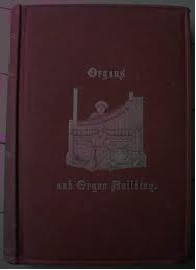Arthur T. Collinson (b.1893): Education & Schooling
Due to positive relationships with his headmasters and teachers, Arthur T. Collinson was able to leave his classes earlier than scheduled in order to complete his newspaper selling job on the busy streets of London. This arrangement enabled Collinson to earn a bit of money for his family, and continue his ongoing ‘street education’ that helped mould his socialist views. Schooling is rarely mentioned throughout the memoir which indicates that school was not Collinson’s place of inspiration, learning or foundation for progression.
Despite this, as a child, Collinson had a quite heavy involvement in the Church. He sang in the local choir, and attended bible class every Sunday afternoon in the Vicarage on Great Russell Street. On top of that, Collinson attended a ‘re-charging’ class in Trinity Church every Sunday evening. These classes didn’t manage to convince Collinson that the word of the Lord and his helpers was magnanimous. Furthermore, the suicide of a churchwarden prompted a questioning of his own faith, “One particular Sunday there was gloom and sadness at the morning and evening services when from the pulpit the vicar announced that the favourite churchwarden had died. He had as a matter of fact hanged him self” (6). A young Collinson couldn’t quite get to grips with what this death, in religious terms, meant, “What did puzzle me was the fact, that now our dearly loved churchwarden was in heaven, we were so miserably sad about it” (7).

Indeed, when he started his first apprenticeship, these questions began to crop up again, “I was therefore shook beyond words to find that as I began to learn my trade I discovered that, of all the good, kind craftsmen from whom I was learning, not one of them believed in God” (14). Certainly, Collinson’s working life provided him with the majority of his ‘education’. He was a permanent student of the ‘school of hard knocks’, if you will. Collinson was learning the way of the world as he went along. In attending the early Suffragette meetings at ‘Speaker’s Corner’, Collinson began to see that there was more than one way to conduct yourself. These meetings showed an alternative to a previously unshakable, religion-heavy approach to life. They also instilled a feeling of injustice in Collinson, “Except for the few of us who joined hands and formed a ring around the cart from which Mrs. Drummond and a number of others who were vainly trying to address the crowd, everyone seemed to be against and personally violent to the speakers” (14).
Inequality and hegemony stirred something in him. Throughout the memoir it is clear that school was not significant to Collinson. Real-life meetings and experiences provided more than routine schooling could. Collinson took these experiences with him into his working life. It was his fellow carpenters and workers that continued to educate and influence Collinson. Immediate trade union involvement aided him, too: “I was to discover in a year or two later, how fortunate I was to have commenced my industrial life in the company of some of the pioneers of the ‘Organ Builders Trade Society’, a small but highly respected trade union. To become a member one had to be a master of the arts and crafts of his trade and in addition be of good character. So different from today when, with a membership of some nine million in the country, countless numbers of trade unionists are merely ‘ticket holders’ many of whom have never attended a branch meeting and whose trade union card is treated as a licence to work” (15).

So, while Collinson’s schooling life was insignificant, what followed was not.
Bibliography:
‘Arthur T. Collinson’, in John Burnett, David Mayall and David Vincent eds The Autobiography of the Working Class: An Annotated, Critical Bibliography Brighton: Harvester, 1984, Vol.3, no. 30.
Arthur T. Collinson, ‘One Way Only: An autobiography of an Old-time Trade Unionist’ in Burnett Archive of Working Class Autobiography, University of Brunel Library, Special Collection, 3:30

Leave a Reply